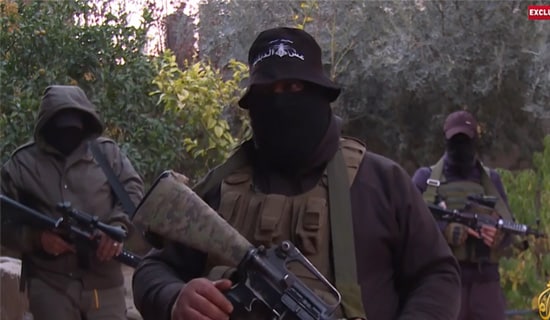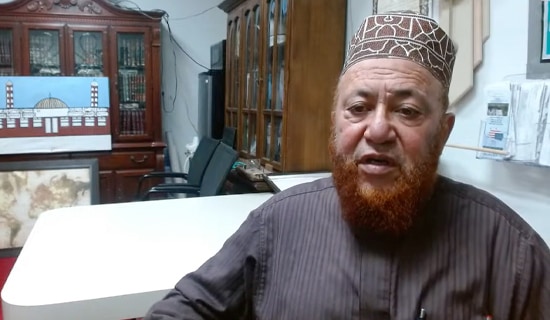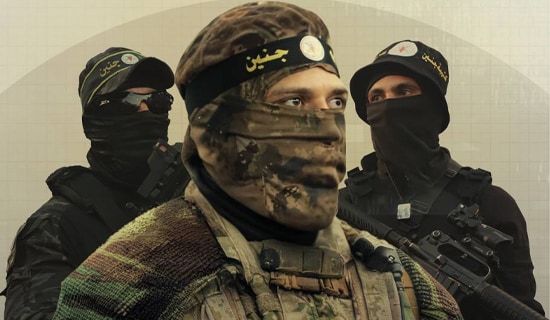On February 7, 2024, the Latvia-based daily Novaya Gazeta published a Russian-language article by Russian Orthodox priest Andrei Kordochkin titled "The End of the Russian World"[1] describing the evolution of the concept of the "Russian World" in Russian society and government.

The end of the Russian world. Pyotr Sarukhanov / Novaya Gazeta
Following is a translation of the article:
"How and by whom the thing pretending to be an ideology was conceived. And why it did not work out.
"'Russian World': Birth
"The term 'Russian world' (hereafter RW) first appears in the The Sermon for the Renewal of the Church of the Tithes – a monumental literary source of the 11th century, where it is used in the sense of 'Rus'' or 'Russian land.' The next time we meet it is 800 years later in the article Two Russian Nationalities by historian Nikolai Kostomarov in the same meaning. Looking into the past (or foreseeing the future), he writes that the conditions for the formation of the RW are 'the aspiration to incorporate other lands, undertaken under the banner of religion, success, sanctified by the idea of God's will, reliance on the masses, obedient to force, when the latter stretches out its hand to protect the former, as long as the latter needs the former, and subsequently giving the people's rights into the hands of those elected by them.'
"The modern doctrine of the RW was born in the 1990s in response to a collective identity crisis after the collapse of the USSR and the collapse of communist ideology. The parents of the RW should be primarily seen in G. Pavlovsky and P. Shchedrovitsky.
"The RW was conceived as a response to the Russian dispersion after the revolution and the collapse of the USSR. Its creators believed that the era of nation-states was coming to an end, and the RW was conceived as Russia irrespective of its political borders, as an alternative to isolation from and opposition to the rest of the world.
"Despite the intellectual freedom of this time, the RW was a political order made by 'one of the responsible government officials,' whose name is not given by the doctrine's creators.
"'Russian World' And The Kremlin: Mutation
"The RW did not immediately become a part of the Kremlin's official discourse.
"At the dawn of the 'Russian Spring' in 2014, an interview with A. Chesnakov, director of the Center for Current Policy and former deputy head of the Russian Presidential Domestic Policy Directorate, was published.
"Chesnakov says that the RW was brought to the Kremlin in 2004 by G. Pavlovsky, and the concept was taken up by V. Surkov and then V. Putin as well. 'By the mid-2000s, administrative measures that would have kept the government system stable were no longer sufficient,' Chesnakov says. This is an important phrase, which actually means the following: In the absence of real political competition, the government declared its legitimacy and irremovability, proclaiming itself the guardian of the RW that it had previously invented.
"To understand what happened next, it is necessary to recall an episode seemingly unrelated to the RW.
At a public event, V. Surkov told about his first school 'startup' selling pornographic photos, and then jokingly remarked: 'Since then I have been selling exciting images.' So, the RW is an exciting image. It is a political brand that appeals mostly to emotion, not reason. What makes it appealing? Greatness and belonging. It is a mobilizing brand.

Vladislav Surkov. Photo: muzhyazheny.ru
"The process of mutation of the RW began. On the one hand, it was acquiring new meanings, on the other hand, it was losing its distinct contours. In an interview recorded in 2021, Surkov says that he introduced the RW into the structure of state policy around 2004. It was a way to declare 'our desire to expand.' On February 15, 2022, he publishes a paper where he again says that Russia is 'cramped and bored' within its current political boundaries.
"Among the political values of the RW, A. Gromyko, director of the Institute of Europe of the Russian Academy of Sciences, emphasizes the sanctity of power and paternalism, and among spiritual values — spirituality (in the sense of the dominance of the spiritual over the material), messianism (Moscow is the Third Rome), idealism, humility (or passion-bearing). These 'spiritual values' can be interpreted as indifference of the state to the material well-being of its citizens, collective narcissism, utopianism, and the willingness of the people to silently undergo suffering caused by the authorities in power.
"A miserable pension or a toilet with a cesspool is just the dominance of the spiritual over the material.
"It is important that Comrade Gromyko declares the sacredness of the authorities on their behalf. The Soviet Union, being an atheist state, proclaimed itself the supreme authority and did not need an external religious source of sanctification. After the collapse of communist ideology, the state again relies on the church to recognize its authority as sacred. In this manner, the RW is brought from the Kremlin into the Russian Orthodox Church and becomes fundamental to the church's discourse.
"'Russian World' And The Russian Orthodox Church: Sanctification
"The RW invented in Moscow kitchens gets filled with divine meanings in the church. Patriarch Kirill speaks of the RW so often that an official church spokesman claims that it was him who introduced the concept. The patriarch's book Seven Sermons on the Russian World gets released.
"The sanctification of the RW takes place not least through identifying it with 'Holy Rus'.' 'The core of the Russian world today is Russia, Ukraine, Belarus, and St. Lawrence of Chernigov expressed this idea with the famous phrase: 'Russia, Ukraine, Belarus — this is holy Rus',' says Patriarch Kirill. And they go on to say even more. 'Russia, Ukraine and Belarus are like the Holy Trinity, and no one can change that,' says N. Poklonskaya. When the three Slavic peoples unite, looking at the image of the Holy Trinity, then we, united, will fight the united satanic forces, as Bishop Pitirim (Tvorogov) prophesies.
"The myth of the 'triune nation' denies Ukraine as such. Timofei Sergeitsev's famous article What Russia Should Do with Ukraine where he says that there should be no state with that name, is a natural development of the RW doctrine.

Patriarch Kirill during the plenary session of the XXV World Russian People's Council. Photo: Sergei Karpukhin / TASS
"For Patriarch Kirill, the RW is a stronghold of 'traditional values' and therefore poses a threat to its enemies, who, however, are never named politically, geographically or by name. This is on purpose: the RW is becoming a part of an occult dualistic cosmology. Evil and good, darkness and light are opposed in it, where the RW stands on the side of light and good from the beginning. Russia as the guardian and visible image of the RW is credited with divine attributes — 'all-goodness' ('Russia has never attacked anyone'), omnipotence ('Russia has never lost a war').
"Everything negative in its history is connected with the machinations of external or internal enemies. The current confrontation is another chapter in this epic, where the RW acts as a victim of some mysterious forces that want to destroy it.
"The XXV World Russian People's Council in 2023 entitled 'The Present and Future of the Russian World' can be viewed as the apogee of the sanctification of the RM. The sacralization of the SMO [Special Military Operation, i.e., the Ukraine War] by the Russian Orthodox Church in cooperation with the state was its main task.
"Criticism Of The 'Russian World'
"The majority of researchers believe that no coherent doctrine of the RW exists. Thus, M. Laruelle defines it as a 'floating signifier' with formlessness being its inherent property and its meaning depending on audience and context. According to N. Vasilevich, 'there is no and never has been a single ideology of the 'Russian world,' it is a number of myths, metaphors and ideas, even in their Orthodox wrapping, but not exclusively in it,' and therefore 'the current support of...[2] by the leadership of the Russian Orthodox Church, in my opinion, is not so much support for the ideology of the 'Russian world' as for the authoritarian regime of Vladimir Putin.'
"This is the opinion not only of scientists. Thus, A. Lukashenko said: 'I asked the [Russian] ambassador, what does it mean to gather Russian lands and what is the Russian world? Nobody explained it to me. Someone after the elections planted a silly idea to the Russian state ideologists, and they started singing this song. This is a fabricated, stupid set-up.'
"Even a single preacher of the RW may not have a clear picture of what the RW is. Thus, S. Aleynikova draws attention to the fact that Patriarch Kirill defines RW in extremely vague categories, such as 'Russian way of dwelling', without revealing its content, features and differences from other ways of dwelling.
"In addition, she notes, 'in three paragraphs of one speech on the topic of the 'Russian world' on September 6, 2014, the patriarch uses the impersonal pronoun 'it' 14 times, and the terminological variation in the context of the topic in question numbers about 15 variants, each of which carries an independent semantic load.'
"Bishop Euthymius (Moiseyev) says that 'the RW, its existence and its boundaries directly depend on how they are understood and defined by the bearers of the idea of RW themselves.' In other words, the RW is what its adherents understand it to be.
"On March 13, 2022 a declaration denouncing the RW as heresy was published. In the same way RM is defined by one of its main critics Fr. Cyril (Hovorun). In his opinion, the RW 'uses the power of classical modernist ideologies such as communism... to consolidate the masses of people, guiding them by propaganda and coercion. It has imported totalitarianism and civilizational nationalism from the 20th to the 21st century.' Thus, the RW is 'an imagined community formed by an ideology that divides people and inspires them to kill each other.'

Photo: Alexander Petrosyan / Kommersant
"The End Of The 'Russian World'
"Contrary to Putin's assertion that the concept of the RW has been used in its current meaning 'since the dawn of time,' contrary to Patriarch Kirill's assertion that the RW was not invented in Moscow or St. Petersburg, the RW is an artificial concept, and its genesis is not difficult to trace. So, it is not Russian politics that is based on the doctrine of the RW, but on the contrary, the RW was artificially conceived by the Kremlin in order to justify the irreplaceability of authorities and to justify territorial ambitions.
"Since its creation, the concept of the RW has completely changed its meaning. In the words of M. Nemtsev, 'created as an alternative to nationalism and any form of imperialism, it is now identified with them.' In 2015, M. Laruelle predicted that the RW as Russia's soft power in the neighboring countries could become a hard one.
"In 2024, the RW is no longer associated with 'soft power' and has become an integral part of the militant vocabulary. In 2014, Patriarch Kirill said that 'alien to our worldview is any war with people of other views and other beliefs,' for 'the religious dimension of the Russian world is the source of our people's peacefulness.' Now he sees the issue differently. It is precisely about the war of the civilization of 'traditional values' against the 'liberal civilization.' Having ceased to be an expression of 'soft power' for the state, the RW has ceased to be for the church what it used to be.
"In 2010, Patriarch Kirill said that 'belonging to the Russian world is determined not by coercion, but on the basis of the free choice of people and peoples. Therefore, the idea of the Russian World cannot be imposed.' This statement has no value anymore. In 2023, at a meeting of the WRPC,[3] A. Dugin said that the Ukraine's choice 'not to be a part of what it is' is the very reason for the current conflict.
"Belonging to the RW is no longer a matter of voluntary choice, but a privilege of those who speak on its behalf. They decide for themselves who belongs to it and who does not, and are willing to use weapons to affirm the affiliation they designate.
"While the RW is based on the assertion that Ukraine is a full-fledged part of it, the practical application of the doctrine has led to the opposite result: an unprecedented consolidation of Ukraine in the confrontation, in which a new, vibrant Ukrainian identity is born. The heroine of K. Gordeeva's* book Take My Grief Away says: 'In Ukraine, we always said: 'It's no concern of mine'. Somehow each of us lived on one's own. And now it's not like that. We are different. Do you believe that a common grief can unite people in such a way?' The RW has become synonymous with grief.
"The RW also led to the apparent division of the Russian Orthodox Church after the separation of the Ukrainian Orthodox Church on May 27, 2022. As has been rightly observed, in a couple of weeks 'everything that the Moscow Patriarchate had tried to preserve in post-Soviet Ukraine for more than three decades was destroyed.'
"If we turn to Russia itself, we can see again the failure of the RW doctrine. It was designed as a platform for reconciliation. Thus, the declaration on the website of the Russkiy Mir[4] Foundation says: 'The Russian World is also Russian reconciliation, agreement, Russian harmony, unity, and the splits of the twentieth century that have been overcome. The Russian World should be not so much a memory of the past as an active, mobilizing beginning of building a better future for a great nation living in peace with itself and the rest of the world.' The RW led not to reconciliation, but to a split in society unprecedented since the Civil War, which is shown, in particular, in the movie Broken Ties by A. Loshak.[5]
"P. Shchedrovitsky said that the RW owes its emergence not only to migration as a result of the collapse of the Russian Empire and the USSR, but was formed largely due to the actions of the state to push people out of their territory. The RW was supposed to reconcile those who left involuntarily with those who stayed. It worked the opposite way. The RW led to the departure of up to a million people from the country. As in post-revolutionary Russia, they are again not 'compatriots' for the authorities, who are in no hurry to extend a hand to them. Patriarch Kirill compares them to the prodigal son and urges them to repent. D. Medvedev calls them 'cowardly traitors' and 'greedy renegades' and wishes their bones to 'rot in a foreign land.'
"So, being created as a reconciliation program, the RW has become a cause of a colossal rupture and alienation. This concerns not only the Russian-speaking community, but also Russia's relations with the world.
"In 2000, P. Shchedrovitsky talked about 'complementarity of cultures' and 'multicultural dialog.' In 2014, Patriarch Kirill said that 'the construction of the RW is not the creation of some isolationist system.' In the same year, A. Chesnakov said that 'the RW has never been anti-Western. It is not anti-western now either.' It is funny to even recall all this now."
[1] Novayagazeta.ru/articles/2024/02/07/konets-russkogo-mira, on February 7, 2024.
[2] Novaya gazeta hides the term "war" in the quoted source but it is obvious from the context.
[3] The aforementioned World Russian People's Council.
[4] "Russkiy Mir" is "Russian world" in Russian.
[5] Included in the Russian Ministry of Justice list of foreign agents.





